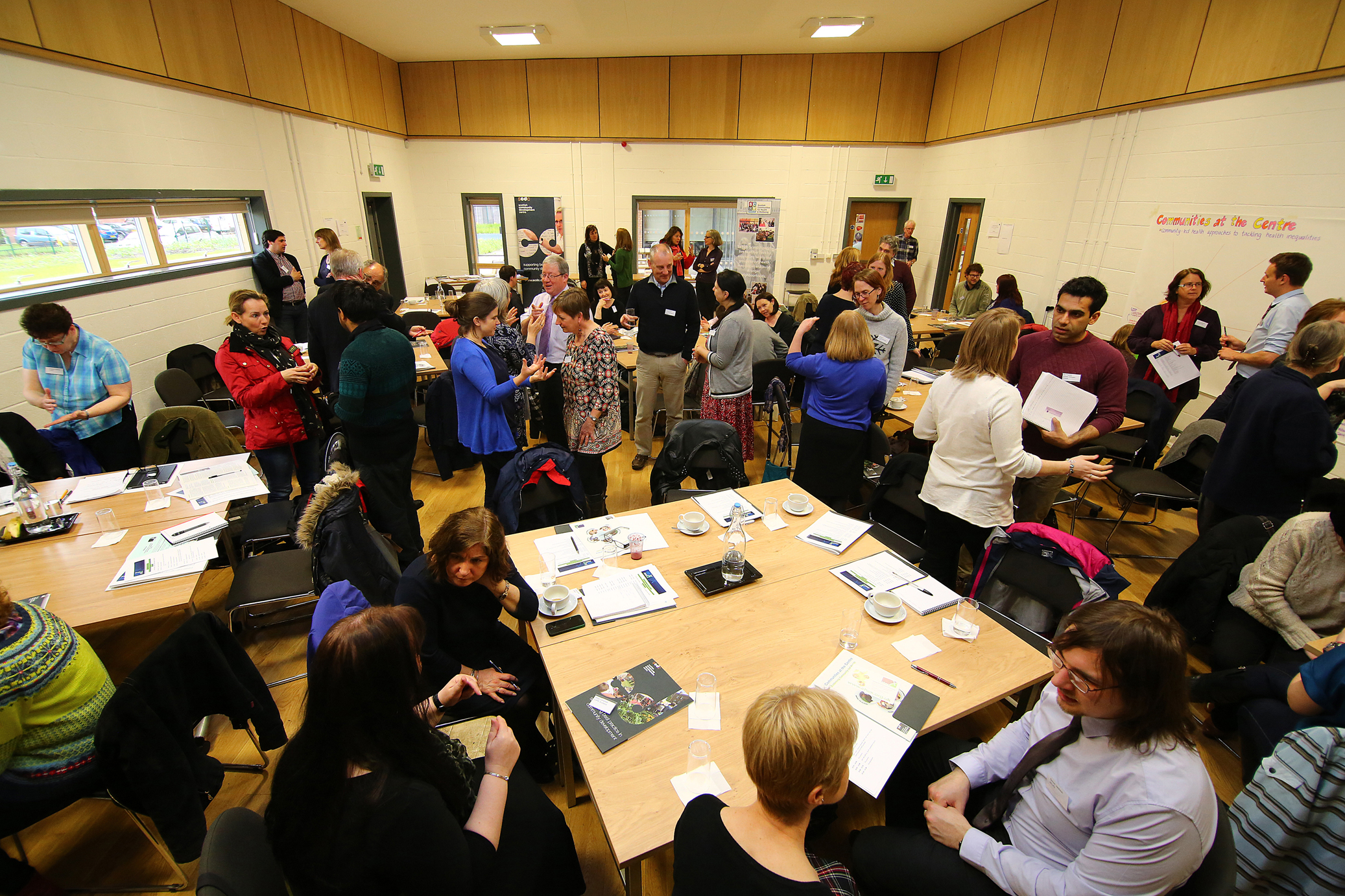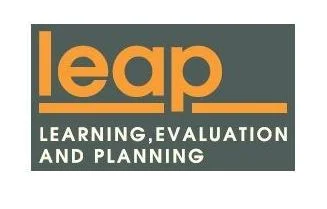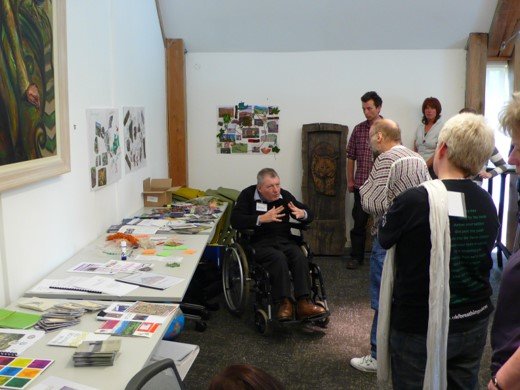Getting it right - a Human Rights Bill for Scotland
/The Scottish Government is developing a Human Rights Bill for Scotland, incorporating a range of economic, social and cultural rights into Scots law for the first time, as far as possible within the limits of devolution.
SCDC submitted a written response to the Scottish Government’s consultation which ran from June until October 2023. Our response welcomes the proposed Bill, and focuses on the importance of participation and community capacity building within the context of human rights. We also stated our support for many of the points made by The Human Rights Consortium Scotland (HRCS) in their helpful ‘Guide to responding to the Human Rights Bill for Scotland Consultation’.
Here is a summary of the main points in our response.
Overall position
We welcome the Scottish Government’s development of a Human Rights Bill for Scotland, incorporating a broad range of rights currently contained within existing international treaties and other developments. We would like to see the Scottish Government work closely with human rights organisations, as well as organisations representing groups with protected characteristics, to ensure that important rights are adequately protected in the Bill.
We endorse the HRCS recommendations to make links within statutory guidance and regulations wherever possible in order to best signal that the Human Rights Act (and civil and political rights) form a core pillar of human rights law in Scotland. We also suggest that this could be extended to include links to participation and empowerment arrangements which are pertinent to human rights.
Which rights?
It is important that all groups who face additional barriers are able to assert their human rights and it is therefore fundamentally important that the Bill contains specific equality provisions for each existing group with protected characteristics, and also for groups protected by existing legislation and treaties. We agree with the HRCS that there should be requirement on Scottish Ministers to publish guidance on interpreting ‘other status’ where this term is used.
The recognition of the right to a healthy environment is a welcome addition to the proposed Bill. We also support the ‘procedural aspects’ to a right to a healthy environment, such as awareness-raising, public participation in decision-making and capacity building. It is important to ensure these aspects are made as strong as possible as they are key to ensuring people have their environmental rights met.
Participation
We strongly support the embedding of participation in the framework of the Bill. Ultimately, rights cannot exist without an ambitious, healthy, effective system of participation which is explicit in its aims, open to scrutiny of its processes and subject to continuous improvement on how it reaches those whose voices are most often denied and therefore are most in need of support to realise their human rights. For this reason, very explicit rights to effective participation, co-designed by rights holders, are fundamental to this. We think it is essential that legislation regarding the right to participate and be engaged as a community in service planning, delivery or evaluation or have access to community empowerment, should be explicitly positioned within the ambit of the provisions of the Human Rights Bill and Incorporation of the UNCRC Bill.
Enforcement
We welcome the duty on public authorities ‘to comply’, and see this as fundamental to the Bill. We would like to see greatest concentration on ensuring that duty-bearers move beyond minimum core obligations to best practice at the earliest stage. We think that all public bodies and those private bodies who are implementing public functions should be required to report on planned and delivered actions to meet their human rights obligations as set out in the Bill.
We agree there should be a need to demonstrate compliance with economic, social and cultural rights, as well as the right to a healthy environment, via minimum core obligations (MCOs) and progressive realization. We broadly support the government's proposal to lower the threshold for a decision-maker being found to have acted unlawfully in relation to human rights.
We agree with HRCS that the Scottish Human Rights Commission should have a role in monitoring and scrutinising government and public body rights reporting. We also strongly agree with the HRSC that success can only be evidenced through the participation of people whose rights are most at risk. Building on this, we see a monitoring role for a reference group or panel made up of people representing groups whose rights are most at risk. The pre-existing Lived Experience Board which is referred to in the consultation could potentially carry out such a role if adequately supported.
Access to justice, support and advocacy
The proposed approach to applying a ‘standing’ or ‘sufficient interest test’ to Human Rights (as opposed to applying a narrower ‘victim test’) is welcome. Since the impact of an action on the human rights of individuals and social groups may not always be immediately obvious, it is very important that those seeking to take cases are supported to demonstrate how systemic and sometimes indirect actions can lead to poor outcomes for citizens and society. As a result, the determination on who should be recognised under the “standing” and “sufficient interest” rules should be determined with this broader array of indirect interests given reasonable weight.
We agree with HRCS that access to individual and collective advocacy is essential to enable rights-holders to realise their rights. We also suggest that the Bill should include how public service complaints procedures and specific participatory interventions such as participation requests under the Community Empowerment Act could be strengthened as a means to realise human rights without the need for judicial review.
We believe legal aid is vital in supporting people who would otherwise face significant finacial and other barriers to claim their rights. Furthermore, we support the proposal that bodies such as the Scottish Human Rights Commission and the Scottish Public Services Ombudsman should have more powers to support human rights cases, although we believe that these bodies will require extra resources to meet increased demand.
There is a need for good, clear and accessible information to be provided for rights-holders (and the general population) across the country. This should be designed and co-produced in conjunction with rights holders and civil society and should draw on good practice and principles such as those contained within the National Standards for Community Engagement.
Implementation
We agree with the proposed duty to publish a Human Rights Scheme and recommend that for best effect/impact it should be co-produced with rights holders, civil society and duty bearers
Although we feel proposals for bringing the legislation into force seem appropriate and measured we also believe that preparation for Bill (Act) implementation should be carried out well in advance and that therefore the sunrise clause (giving duty-bearers time to prepare for full commencement of the legislative framework) wouldn’t need to be for an over-lengthy period of time.
Building capacity across the public sector is a crucial area for successful implementation of the Bill. There is a need to ensure that all staff across the public sector (and other sectors with public implementation duties) are well-trained in all aspects of human rights, both in terms of general awareness and specific roles and duties. There is a clear case for rights holders to be involved in this training (both its design and delivery). The training/support needs to be planned and delivered in advance of full compliance with on-going refresher and update training provided on an annual basis
Read more
Download SCDC’s full submission to the consultation. Click here (pdf)
Read the HRCS guide to the consultation. Click here (pdf on external website)
Visit the Scottish Government’s consultation page. Click here (external website)
Find more resources and information on human rights on Communities Channel Scotland. Click here (external website)
























